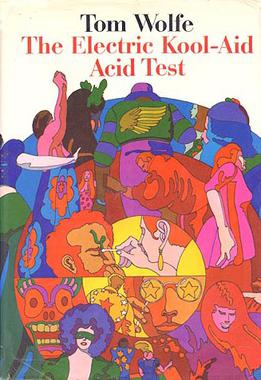Tom Wolfe-Fashionista Of His Own Kind-And A Hell Of A Writer When The Deal Went Down Has Cashed His Check
By Bart Webber
I had been, strangely enough, in La Jolla out in California attending yet another writers’ conference which seems to be the makings of my days these days when I heard Tom Wolfe (not Thomas Wolfe of Look Homeward, Angels, etc.) the writer of tons of interesting stuff from acid trips in the 1960s to space flights in the 1970 to Wall Street in the reckless 1980 and back had cashed his check. The strange part of the “strangely enough” was that on Monday May 14th 2018, the day he died, I was walking along La Jolla Cove and commenting to my companion that Tom Wolfe had made the La Jolla surfing scene in the early 1960s come alive with his tale of the Pump House Gang and related stories without knowing he had passed.
I don’t know how he did at the end as a writer, or toward the end although I note he did an interesting take on the cultural life at the Army base at Fort Bragg down in North Carolina but pound for pound in his prime he could write the sociology of the land with simple flair and kept this guy flipping the pages in the wee hours of the morning. RIP, Tom Wolfe, RIP.
Click on the headline to link to a "Wikipedia" entry for Tom Wolfe's "The Kandy-Kolored Tangerine-Flake Streamline Baby."
Book Review
The Kandy-Kolored Tangerine-Flake Streamline Baby, Tom Wolfe, Farrar, Straus and Giroux, New York, 1965
The subject of “Gonzo journalism”, a journalistic literary trend started in the 1960s, and its most well-known practitioner, the late Doctor Hunter S. Thompson, has received much ink in this space over the past several years. The gist of this journalistic literary trend is that the writer gets “down and dirty” with whatever he or she is writing about and becomes an aspect of the story, one way or another. Now this notion set the traditionalists who worked under the so-called objectivist theory, “nothing but the facts, Jack” back on their heels. Of course, we all knew, and know, that this traditional approach was honored in the breech more than the observance and that old Hunter was merely rubbing everyone’s face in it. However, Hunter Thompson was not the only one trying to go to “edge city” in his writing in what now has become, academically translated, the “new journalism”. The writer under review, Tom Wolfe, also tried in a less zany way to break out of the traditional mold as well.
While Thompson was more than happy to tweak “edge city” Brother Wolfe, by his whole social existence, and by something deep down in his training never really got all the way there. He never really pressed the issue of his own involvement in the story, nor would it perhaps have worked for him, but surely off of this early work he is on to something different from the run of the mill “straight” journalism of those days. Heck, even Hunter Thompson, argued, and argued strenuously, that most of his attempts at ‘gonzo” didn’t work either. Here some of Wolfe’s entries are brilliant, some much less so but that seems par for the course when one is experimenting with new forms.
For today’s reader of this material it may be very, very hard to judge what Brother Wolfe was up to since, with few exceptions, most of the subject matter is very time-sensitive. Except maybe that “good old boy” piece he did on the legendary stock car racer Junior Johnson, “The Last American Hero.” On that one he “kicked out the jams” to get the flavor of the social milieu that supported, and today still forms the core support, of those stock car races. Another beauty of a story is the title one, “The Kandy-Kolored Tangerine-Flake Streamline Baby”, about the “hot rod" and customizing car craze and its culture among male teenagers that emerged after World War II. That sub-culture is still there, buried in the bushes, but in an age of computer-controlled cars that “mystique” has lost its edge. Still a nice read though.
